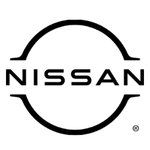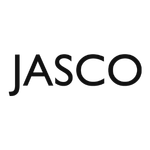The Impact of AI on Copyright Law

AI is transforming content creation, raising new questions about copyright law. The ability of AI to generate original works challenges traditional concepts of authorship and copyright protection. As AI technologies advance, they are increasingly capable of creating art, music, literature, and other forms of content that traditionally required human creativity. This shift necessitates a reevaluation of existing copyright frameworks to address the unique issues posed by AI-generated content.
AI-Generated Content
The U.S. Copyright Office has been addressing how AI-generated works fit within existing copyright frameworks. Issues such as ownership and the scope of protection for AI-created content are at the forefront of these discussions. For example, the Office has held public consultations and issued statements to clarify its stance on AI-generated works, emphasizing that copyright protection requires human authorship. According to Law Firm SOS, current copyright laws do not recognize AI systems as authors, which means that works created entirely by AI cannot be copyrighted (IP Watchdog).
One prominent case that highlights these issues is the U.S. Copyright Office's rejection of a copyright application for an artwork created by an AI known as "Creativity Machine." The Office's decision was based on the requirement that a work must be created by a human to qualify for copyright protection. This ruling underscores the need for clear guidelines on how AI-generated content should be treated under copyright law. Additionally, it raises questions about how to attribute authorship and ownership when AI is involved in the creative process (IP Watchdog).
Legal and Ethical Considerations
Determining who owns the rights to AI-generated content—whether it is the programmer, the user, or the AI itself—poses significant legal and ethical questions. These decisions will shape the future of creative industries and the protection of intellectual property. For instance, if a programmer creates an AI that generates a piece of music, does the programmer own the copyright to the music, or does the user who directed the AI's actions hold the rights? Alternatively, should the AI be considered an independent creator with its own rights?
These questions are further complicated by the collaborative nature of many AI-generated works. Often, AI systems work in tandem with human creators, who provide input and direction. In such cases, it may be challenging to determine the extent of human contribution versus the AI's role in the final product. This blurred line between human and machine creativity requires a nuanced approach to copyright protection that accounts for the unique contributions of both parties(IP Watchdog).
Moreover, ethical considerations must be addressed. For example, the potential for AI to create vast amounts of content rapidly could lead to an oversaturation of creative works, making it harder for human creators to compete. Additionally, the use of AI in content creation raises concerns about originality and authenticity. If an AI system generates a novel that closely mimics the style of a famous author, does this constitute an infringement of the author's copyright, or is it a new, original work? These ethical dilemmas highlight the need for comprehensive guidelines that balance the interests of human creators, AI developers, and the public (IP Watchdog).
Conclusion
As AI continues to generate content, adapting copyright laws to address these challenges is essential. Patlytics.ai can assist in managing and protecting AI-generated IP, providing automated solutions that keep pace with technological advancements. By leveraging AI and advanced analytics, patlytics.ai can help identify potential copyright issues, monitor the use of AI-generated content, and ensure compliance with evolving legal standards. This proactive approach to IP management not only mitigates risks but also supports innovation and creativity in the digital age. As the legal framework adapts to the new realities of AI-generated content, businesses and creators must stay informed and flexible to navigate this dynamic landscape effectively.
Reduce cycle times. Increase margins. Deliver winning IP outcomes.
The Premier AI-Powered
Patent Platform










.png)




























.png)




























.png)




























.png)

















